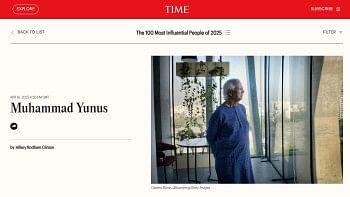Budget: Don’t kill the golden goose

Despite being a humble banking professional, I am very lucky to have been engaged with the country's budgetary process since the early '90s. Many champions, including Saifur Rahman, Shah AMS Kibria, AB Mirza Azizul Islam, Akbar Ali Khan, Masihur Rahman and Khairuzzaman Chowdhury, valued my inputs and private sector insights.
I always believed, Bangladesh has come across a long way with regards to budgetary framework, allocation and implementation. But what is hindering efforts toward making a more inclusive and effective budget is last minute deviation from our aspiration to make the budget an innovative and business friendly one. With much frustration, it ends up as a haphazard exercise of reconciling the numbers only.
In a recent pre-budget discussion with the finance ministry, economists including myself stressed the need for designing the national budget for the upcoming fiscal year in a way that prioritises macroeconomic stability. We also emphasised the need for revising tax policies and tariff reforms in line with the World Trade Organization (WTO) regulations to aid in Bangladesh's preparation for graduating from the least developed country (LDC) list in November 2026.
Many said targeted interventions are required to address the economic challenges, and these should be incorporated into the upcoming budget to ensure fiscal prudence, maximising the use of our scarce resources. At the same time, as Bangladesh transitions into a developing economy, it must phase out direct export incentives to meet WTO standards and employ alternative WTO-compliant measures. Revision of agricultural trade policies, elimination of minimum import prices on certain goods, and adjustment of tariff structures to keep custom duties aligned with the bound tariff commitments that Bangladesh made under the WTO agreements are also necessary for maintaining compliance during post-LDC graduation. Ensuring WTO compliance is of utmost importance as Bangladesh is set to lose the perks and waivers that come with LDC status.
A few also suggested formulating strict legislation to prevent tax evasion, track wealthy tax dodgers, and increase revenue through direct taxation. Bangladesh for long had one of the lowest tax-GDP ratios in the world. It's high time this was corrected, and to do so, the authorities must ensure that all eligible taxpayers, including influential individuals, are held accountable. Moreover, the recent increase in VAT and supplementary duties should be reconsidered as raising revenue through indirect taxes is placing undue burdens on citizens, who have long been struggling with high inflation.
As the next fiscal year is going to be a crucial one amid all the uncertainties caused by the July uprising, fall out effect of financial sector mess up and slow decision making, the national budget must reflect prudent and strategic thinking on the government's part. Long-term policies to address persistent and potential setbacks should be integrated into budget preparations to ensure Bangladesh is adequately prepared for challenges that lie ahead.
We need national capital to grow faster to finance our growth. That growth must come through broadening the tax base, not by killing the golden goose -- existing tax payers, especially individual ones who are mostly salaried. This in another way would squeeze their purchasing power or disposable income. Interestingly, with further digitalisation and growth in private entrepreneurship, this number will grow fast.
Though various statistics derived from foreign and local institutions show that almost 20 percent of our population earn more than $3,000 annually, our tax identification number (TIN) holding population is only 11.3 million and out of this, only 4 million submitted tax returns for last fiscal year.
This begs the question: where is the shoe pinching? We need to broaden our tax base and send a good message to existing tax payers, especially by incentivising large individual and corporate tax payers instead of raising their tax incidence further. Many countries, including Singapore, are increasingly focusing on the "ultimate kitty" rather than the percentage.
The author is chairman of Financial Excellence Ltd

 For all latest news, follow The Daily Star's Google News channel.
For all latest news, follow The Daily Star's Google News channel. 








Comments